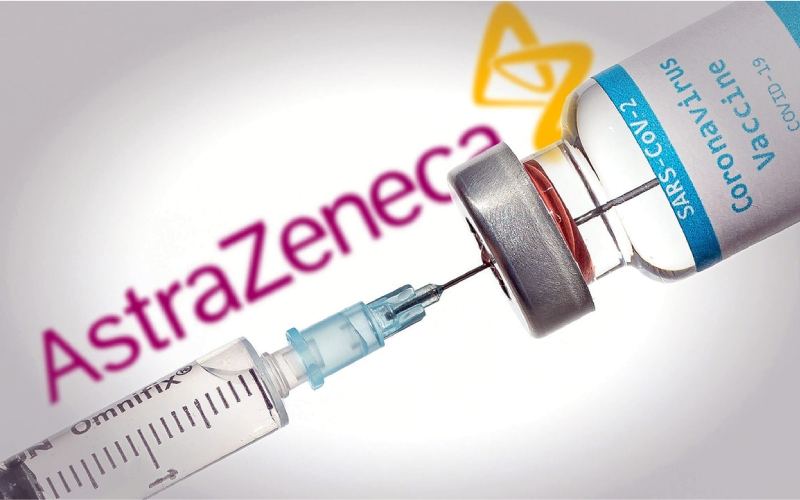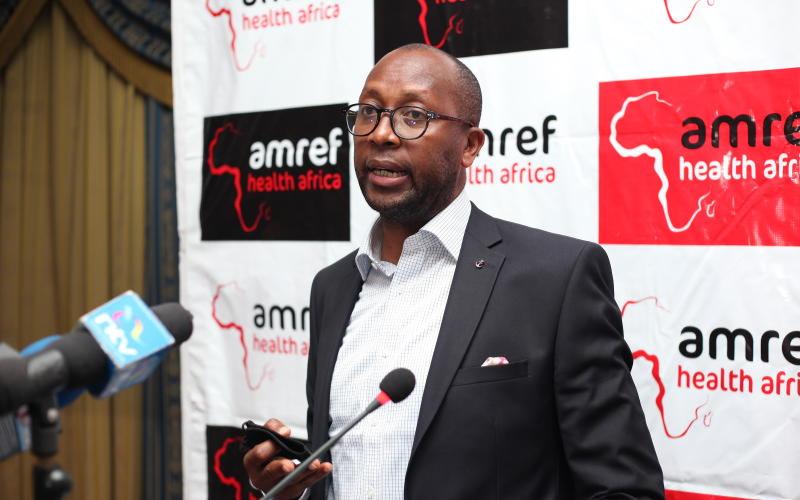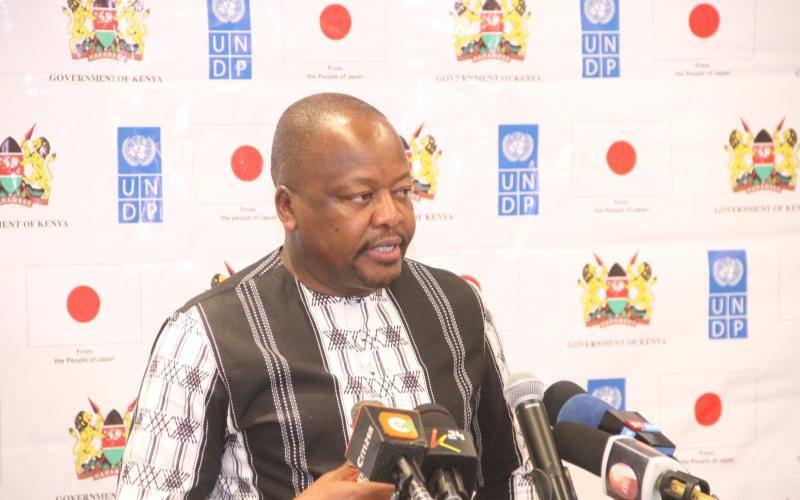
News of a vaccine coming into the country in the next few weeks is probably the most refreshing information that reached Kenyans’ ears at the onset of 2021.
The Ministry of Health announced that AstraZeneca would be in the country in February, shining a ray of hope after months of suffering in the hands of a fast-spreading coronavirus.
It might not only be AtsraZeneca as Health Cabinet Secretary Mutahi Kagwe said. Other vaccines may arrive before mid-February.
“We have engaged in various institutions, especially Gavi who are the ones who are leading in the acquisition of the vaccines that are expected in Kenya. It is, therefore, possible that vaccines may come here before the targeted day by Gavi in accordance with the plans that have been made by both the public and private sector,” said Kagwe.
And now Gitahi Githinji, Amref Health Africa Group CEO, says it is time Treasury committed to releasing money in readiness for the administration of the vaccine.
One of the problems is that the development of the vaccines, for an unprecedented virus, was done in record time and no vaccine has gone past all the three-phase trials.
“As such, the vaccines have not received regulatory approval. They only have an emergency use authorisation. For the regulatory approval, the vaccine goes through analysis of initial data and efficacy. Then it is allowed for emergency use, which is conditional,” says Dr Githinji.

“As such, the private sector may not as yet be allowed to transact in alternative vaccines, and it can only help the Government in the distribution.”
When the rollout finally happens, the Government will have to jump some crucial hurdles to label the process a success.
Possible disinterest
The government must be staring at a possible disinterest in, and thus low uptake, of the vaccine.
It is easy to assume that a country battered economically by Covid-19 will be scrambling for the vaccine but Ahmed Yakub Kalebi, the Founder, CEO and Group Managing Director of Lancet Group of Laboratories-East Africa, thinks otherwise.
“We would expect that once the vaccine is here, people will rush in to get it. But the problems of uptake are all over the world. I think America has struggled in uptake, but Israel has gotten it right, where (Prime Minister Benjamin) Netanyahu was the first to get the jab,” says Dr Kalebi.
“Our government has been quite reluctant to publicise the vaccination. They have not prepared people to take it. They have not involved the community leaders, without whom the community will be hard to convince.”
To many people, Dr Kalebi says, Covid-19 itself is a hoax. As such, to them, it beats sense to vaccinate.
“There is skepticism all around. In many places, people first and foremost don’t believe that Covid-19 is real. If Kenyans can take lightly diseases as serious as polio, which have been around for ages and whose vaccination is free, you can imagine a disease as new as Covid-19.
“The government must decide when to popularise the vaccine. If it starts too late, it might find itself with a vaccine that nobody wants to take. If it starts too early, you might create too much demand you might not meet.”
Dr Githinji recommends a communication plan to create a vaccination awareness.
Not enough doses
Twenty-four million doses requested through a World Health Organisation-supported initiative called Covax Facility are supposed to be in the country as part of the first vaccination drive.
Although Kagwe spoke about various other vaccines also mooted for Kenya, AstraZeneca remains top of the priority list, according to experts.
“The discussions that have been going on between the Africa platform, the suppliers all the way from Pfizer, Moderna, AstraZeneca, including also some of the Chinese ones such as Sinopharm and Sinovac; all these organisations are involved in discussions to see when vaccines are coming to this country,” he said.

For AstraZeneca, the doses will not arrive at the same time, though, due to some countries’ over-procurement of vaccine doses beyond production capacities, coupled with the underfunding of Covax.
Experts say the first batch will be inadequate. And herein lies yet another problem: who to get immunised first.
Priority: who gets it first?
The government will most likely have a hard time to decide if they vaccinate the most vulnerable first or the likeliest super spreaders. They all would not be served in the first round.
“Some countries have decided to vaccinate health care workers while others have gone to care homes to vaccinate the aged, who are the most vulnerable. Others have decided to vaccinate young people who are more likely to carry the infections around,” says Dr Kalebi.
Recently, the government hinted at first vaccinating the most vulnerable.
“We have developed a protocol on who receives the vaccines once in the country, starting with health workers and the elderly,” said Ministry of Health Acting Director General Patrick Amoth.
Dr Amoth said 430,000 health workers would be vaccinated, and after them, 5.3 million elderly persons.
They will be followed by 4.4 million people living with chronic diseases, and then 830,000 teachers and security personnel.
This would see about 11 million Kenyans vaccinated, which would almost exhaust the initial 24 million free doses promised through the Covax Facility for this year.
Dr Githinji says a priority list should be drawn to determine the order of recipients of the vaccine, with health workers, essential workers, the elderly and those with underlying health conditions targeted.
Can the private sector import?
Private companies might soon find themselves tasked with serving their customers with alternative vaccines. The government is, however, yet to announce if such a move will be allowed.
Dr Gitahi said the vaccines have not received regulatory approval, which means the private sector might not yet import.
But Kagwe, while speaking about the importation of different vaccines, mentioned that there were discussions ongoing with the private sector, hinting that the sector might be among those handling administration of the vaccine.
Abdi Mohamed, who chairs the Kenya Association of Private Hospitals (KAPH), says the government, in allowing the private sector to import any of the approved vaccines, will be easing a heavy burden off its own back.
“If private companies are allowed, there are individuals that will be willing to pay for the vaccine. But that is government policy. It will reduce burden on government in logistics and distribution,” says Dr Abdi.
Kalebi feels that the Government may be unwilling to allow private companies to import and distribute the vaccines as it creates an unfair advantage to those who can afford the vaccines in society.
“Players in the private sector should be allowed to import WHO approved vaccines. However, there is hesitance from the Government as it does not want to bring vaccines that some can afford when the majority who cannot afford are left in the cold,” he says.
Would the private companies take advantage and make a killing out of selling the vaccine to their high-end customers?
“No. I don’t think anyone doing this is doing it purely for profit. They are seeking to serve the people. If private companies are able to get it quickly, though, they will have good business and good return on investments, and cover their costs. But making a killing is not the right way to view this,” argues Kalebi.
Distribution
How to distribute and administer the vaccine will also be quite a headache.
Kenya has an effective Kenya Expanded Programme on Immunisation (KEPI) Schedule, which is responsible for the distribution and administration of vaccines.
But equipment and personnel to make this possible will be a real headache for a government which has seen, in the very recent past, a disgruntled workforce down tools owing to a dissatisfaction with pay.
“KEPI is effective for vaccine distribution, and so the infrastructure for the vaccination is there. But even with that infrastructure, we still have a challenge of getting to people who need the vaccine most.
The good thing with AstraZeneca is that it can be kept at normal refrigeration temperature, and so logistics will be less of a challenge, but a challenge nonetheless,” Kalebi says.
“One of the problems we faced with Covid-19 testing was sample collection. If health workers are already disgruntled about pay, are they going to do the vaccination as their normal job or are you going to pay them for this task separately, or will you hire different people to do it? That is something that the government needs to look into.”
Also, will we have every equipment that accompanies the vaccines?
“Remember when we got the kits, we did not have swabs. You might find you have the vaccine but you don’t have things like disinfectants, swabs, gloves, disposal containers and needles.”
Public and, or, private hospitals?
It is also felt that the arrival of the AstraZeneca, which is procured by the Government and will be made available to the public, will lock out people in the private sector.
“People in the private sector may not access the vaccine when it is in the public sector. Some people will avoid the public sector as much as possible. And some of these people in the private sector could be the super spreaders,” Kalebi observes.
Will the Government then send some of the supplies acquired to the private sector? And if so, will the private clinics and hospitals administer these doses for free?
“As this vaccine is coming in as a donation, but the private clinics have to charge for it, how is the costing going to be done? They will need to charge for the services they offer and time spent, so how will that cost be calculated?”
The AstraZeneca has a lower efficacy than the Pfizer and the Moderna, Kalebi says. However, it is more affordable, and easier to store and transport.
Abdi says that lower efficacy matters little in this case.
“You don’t need a vaccine to have an efficacy of 90 per cent, 60 per cent is enough.
“And I would go for the AstraZeneca because the Pfizer needs a proper cold chain transport system. That one you can never guarantee. So you cannot know if the cold chain has been maintained or not. I would go for what I am sure of.”
The vaccines that will be shipped in by the private companies will have received international approval, such as from WHO, to ensure they are quality products. “For vaccination there is a whole quality chain right from production to the end user. That we will get substandard in an unfounded worry,” says Dr Mohamed.
Training of health workers
Dr Githinji says health workers need a training to the lowest level so that they are able to identify and report possible adverse effects of the vaccine and report it to the researchers.
“Even community workers should be in a position to note and manage to report issues about the vaccines.
Such a training drive is necessary, and the government should prioritise it,” he says.
 The Standard Group Plc is a multi-media organization with investments in media platforms spanning newspaper print
operations, television, radio broadcasting, digital and online services. The Standard Group is recognized as a
leading multi-media house in Kenya with a key influence in matters of national and international interest.
The Standard Group Plc is a multi-media organization with investments in media platforms spanning newspaper print
operations, television, radio broadcasting, digital and online services. The Standard Group is recognized as a
leading multi-media house in Kenya with a key influence in matters of national and international interest.











